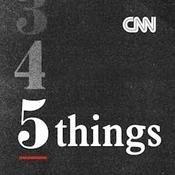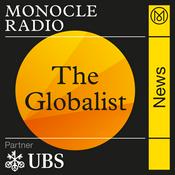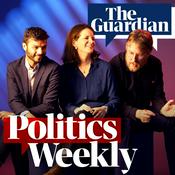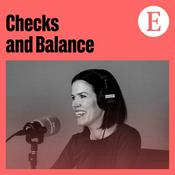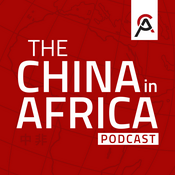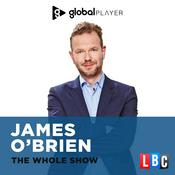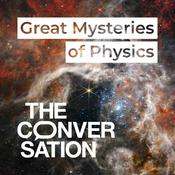263 episodes
- Super Bowl Sunday is the biggest night in American sports. A popular destination to watch – and bet – on the Super Bowl is Las Vegas, Nevada.
And it was in Las Vegas, ahead of the 1986 Super Bowl between the Chicago Bears and the New England Patriots, that one enterprising casino would kickstart a new direction in American sports gambling: prop betting. It offered odds not just on the result of the game, but on the outcome of an individual event within it – whether one defensive player called William Perry, nicknamed The Refrigerator, would score a touchdown.
Today, as American sports face multiple gambling scandals, we speak to John Affleck, Knight Chair in sports journalism and society at Penn State, about that 1986 Super Bowl, the history of prop betting, and why he believes its explosion is threatening the integrity of professional sports in the US.
This episode was written and produced by Katie Flood with editing help from Mend Mariwany. The executive producer is Gemma Ware. Mixing by Michelle Macklem and theme music by Neeta Sarl. Read the full credits for this episode and sign up here for a free daily newsletter from The Conversation.
If you like the show, please consider donating to The Conversation, an independent, not-for-profit news organisation.
Watch the Super Bowl Shuffle by the Chicago Bears
Supreme Court delivers a home run for sports bettors – and now states need to scramble
Bad Bunny’s Super Bowl show is part of long play drawn up by NFL to score with Latin America
How the explosion of prop betting threatens the integrity of pro sports - On January 8, as thousands of Iranians took to the streets in nationwide protests, the government cut off the internet. Under cover of digital darkness, the Iranian regime launched a brutal and deadly crackdown against anti-government protesters.
After three weeks of internet blackout, reports from web traffic monitor Netblocks suggest that the internet is slowly coming back online but predominantly for government-approved users.
Yet for most of the shutdown, banks and some local government websites and apps still worked. And that’s because Iran is developing its own, national internet, cut off from the rest of the world.
In this episode, we speak to Amin Naeni, a PhD candidate researching digital authoritarianism at Deakin University in Australia, about how Iran built one of the world’s most sophisticated systems of digital control.
This episode was written and produced by Mend Mariwany and Gemma Ware with editing help from Katie Flood. Mixing by Michelle Macklem and theme music by Neeta Sarl. Read the full credits for this episode and sign up here for a free daily newsletter from The Conversation.
If you like the show, please consider donating to The Conversation, an independent, not-for-profit news organisation.
Iran’s universities have long been a battleground, where protests happen and students fight for the future
Iran’s biggest centres of protest are also experiencing extreme pollution and water shortages
This is the playbook the Iranian regime uses to crack down on protests – but will it work this time?
Why Iran can’t afford to shut down the internet forever – even if the world doesn’t act
Iran’s latest internet blackout extends to phones and Starlink
Mentioned in this episode:
The Making of an Autocrat
Search "The Conversation Weekly" for our new series: The Making of an Autocrat.
Is America watching its democracy unravel in real time? In The Making of an Autocrat from The Conversation, six of the world’s pre-eminant scholars reveal the recipe for authoritarian rule. From capturing a party, to controlling the military, Donald Trump is borrowing from the playbook of strongmen thoughout history. This is the story of how democracies falter — and what might happen next. - In the summer of 1959, a group of American soldiers began carving trenches in the Greenland ice sheet. Those trenches would become the snow covered tunnels of Camp Century, a secret Arctic research base powered by a nuclear reactor.
Camp Century operated for six years, during which time the scientists based there managed to drilling a mile down to collect a unique set of ice cores. But by 1966, it had been abandoned, deemed too expensive and difficult to maintain.
Today, Donald Trump’s territorial ambitions for Greenland continue to cause concern and confusion in Europe, particularly for Denmark and Greenlanders themselves who insist their island is not for sale.
One of the attractions of Greenland is the gleam of its rich mineral wealth, particularly rare earth minerals. Now that Greenland’s ice sheet is melting due to global warming, will this make the mineral riches easier to get at?
In this episode, we talk to Paul Bierman, a geologist and expert on Greenland’s ice at the University of Vermont in US. He explains why the history of what happened to Camp Century – and the secrets of its ice cores, misplaced for decades, but now back under the microscope – help us to understand why it’s not that simple.
This episode was written and produced by Mend Mariwany and Gemma Ware with editing help from Katie Flood. Mixing by Michelle Macklem and theme music by Neeta Sarl. Read the full credits for this episode and sign up here for a free daily newsletter from The Conversation.
If you like the show, please consider donating to The Conversation, an independent, not-for-profit news organisation.
Why Greenland is indispensable to global climate science
Greenland is rich in natural resources – a geologist explains why
Greenland: Staying with the Polar Inuit. How a secret military base helped trigger the silent collapse of an Arctic world
The US military has cared about climate change since the dawn of the Cold War – for good reason
Mentioned in this episode:
The Making of an Autocrat
Search "The Conversation Weekly" for our new series: The Making of an Autocrat.
Is America watching its democracy unravel in real time? In The Making of an Autocrat from The Conversation, six of the world’s pre-eminant scholars reveal the recipe for authoritarian rule. From capturing a party, to controlling the military, Donald Trump is borrowing from the playbook of strongmen thoughout history. This is the story of how democracies falter — and what might happen next. - In a moment being celebrated by global marine conservationists, a new UN high seas treaty comes into force on January 17 providing a new way to govern the world's oceans.
The UN high seas treaty will allow for the creation of protected areas in international waters, like national parks. But the treaty has some grey areas – notably its powers to regulating fishing in international waters, and mining of the seabed.
In this episode we speak to Callum Roberts, professor of marine conservation at the University of Exeter in the UK, about how the treaty came to be and the challenges now facing its implementation.
This episode was written and produced by Mend Mariwany and Gemma Ware. Mixing by Michelle Macklem and theme music by Neeta Sarl. Read the full credits for this episode and sign up here for a free daily newsletter from The Conversation.
If you like the show, please consider donating to The Conversation, an independent, not-for-profit news organisation.
Global power struggles over the ocean’s finite resources call for creative diplomacy
Targets to save 30% of the ocean by 2030 aren’t being met, new report reveals
The historic High Seas Treaty is almost reality. Here’s what it would mean for ocean conservation
A landmark treaty could protect the high seas – and spark new conflicts - In November, six Democratic lawmakers recorded a video directed at members of the US military and intelligence agencies. In it, they issued a blunt reminder:
"The laws are clear: you can refuse illegal orders. […] You must refuse illegal orders."
The lawmakers were issuing the warning against the backdrop of US airstrikes on boats off the coast of Latin America the Trump administration claims are suspected drug runners. Many Democrats and legal experts, however, argue these strikes are illegal.
Since returning to office, Trump has successfully expanded his power over his own party, the courts and the American people. Now, like many autocrats around the world, he’s trying to exert control over the military.
In the final episode of The Making of an Autocrat, Joe Wright, a political science professor at Penn State University, says:
"I am very concerned that getting the military to do illegal things will not only put US soldiers at more risk when they do engage in international missions in the future […] it’s a first step to using the military to target domestic political opponents. That’s what really worries me."
This episode was written by Justin Bergman and produced and edited by Isabella Podwinski and Ashlynne McGhee. Sound design by Michelle Macklem.
More News podcasts
Trending News podcasts
About The Conversation Weekly
A show for curious minds, from The Conversation. Each week, host Gemma Ware speaks to an academic expert about a topic in the news to understand how we got here.
Podcast websiteListen to The Conversation Weekly, Global News Podcast and many other podcasts from around the world with the radio.net app

Get the free radio.net app
- Stations and podcasts to bookmark
- Stream via Wi-Fi or Bluetooth
- Supports Carplay & Android Auto
- Many other app features
Get the free radio.net app
- Stations and podcasts to bookmark
- Stream via Wi-Fi or Bluetooth
- Supports Carplay & Android Auto
- Many other app features


The Conversation Weekly
Scan code,
download the app,
start listening.
download the app,
start listening.











